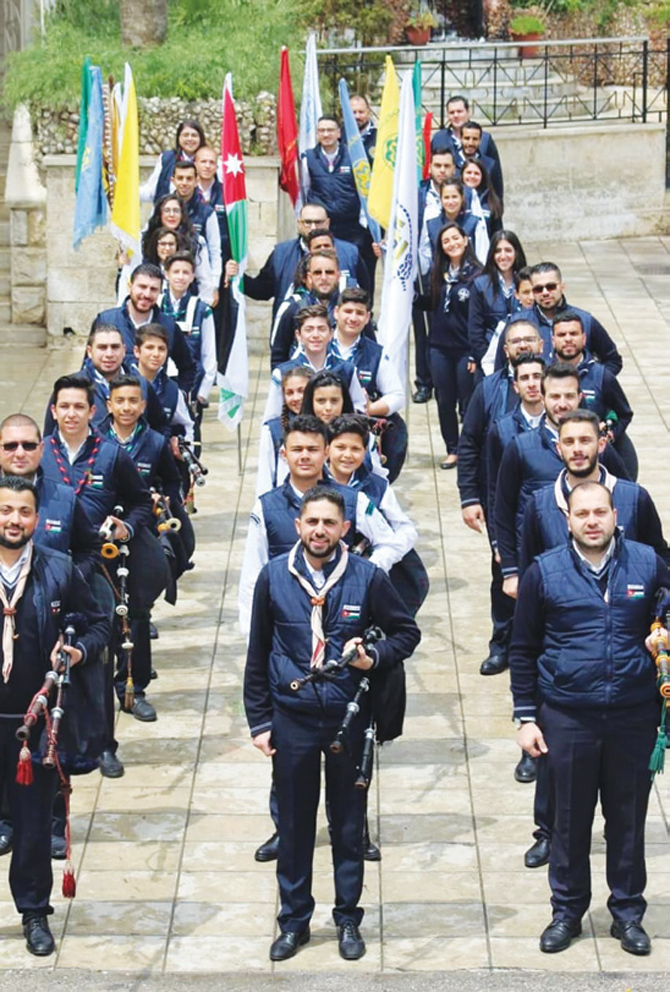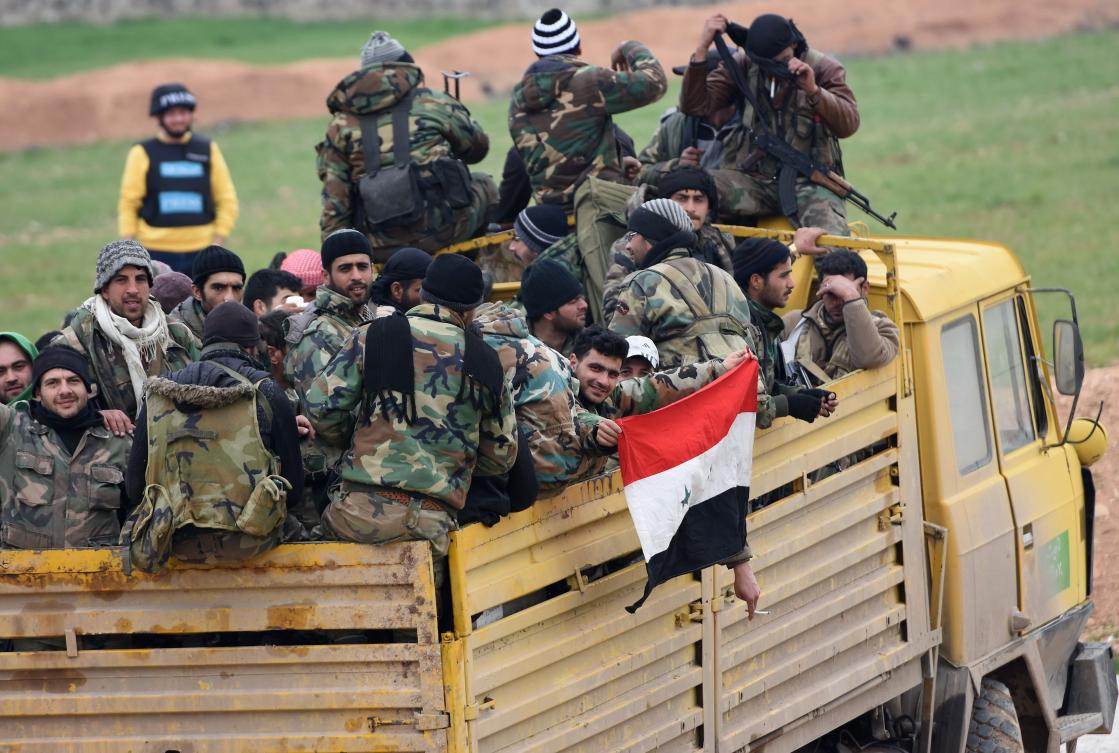Bagpiper graffiti celebrates Jordan’s ‘Scottish connection’
AMMAN: For almost a century now, Jordanians have had a special affinity with the bagpipe, a musical wind instrument with roots in the Scottish Highlands.
That historic bond is now being commemorated with stunning graffiti in an Amman neighborhood.
The colorful artwork, for which the capital’s western Khalda district has been in the limelight of late, shows a Jordanian soldier in a checked red keffiyeh (headdress) blowing air into his bagpipe.
Local residents know the bagpiper with the chubby face as Habes, whose portrait has become one of the most visited and photographed sites in the entire capital.
How young Jordanians have come to identify with a musical instrument with checked red bags that resembles the Scottish kilt is a fascinating story steeped in history.
FASTFACTS
- A sculpture of bagpipers has reportedly been found on a Hittite slab from 1,000 B.C.
- Images are known to have been found of ancient Greeks playing piped instruments.
- Many foreign militaries patterned after the British Army as well as police and fire services have adopted the tradition.
The bagpipe is a windblown device that can produce a wide range of musical tunes. For centuries, pipe bands have been a reassuring presence at parades, weddings, festivals and funerals throughout the world.
During the expansion of British colonial rule, spearheaded by military forces that included Scottish Highland regiments, the bagpipe became a familiar sight across the empire.
The instrument’s popularity received a further boost in the 20th century when large numbers of bagpipers were trained for military service during the two world wars.
In Britain as also in Commonwealth countries such as Canada, New Zealand and Australia, the Great Highland bagpipe became a favored musical instrument of military bands, often played during formal ceremonies.
In the Middle East, the British began fielding bagpipe bands during the days of the Transjordan Mandate in the early 1920s, when they were helping set up and train the protectorate’s army.
Despite the passage of decades and the termination of the Mandate, the instrument became a fixture of military bands and popular culture in Jordan and Oman.
In 1996, Ahmad Khatabeh, a member of the Jordanian armed forces, decided to join the army’s musical band. This meant he had to learn how to play the bagpipe.
It took Khatabeh two years to master the instrument. “The first year was totally theoretical,” he told Arab News, referring to the physics of the bagpipe, which uses enclosed reeds that are fed from a constant reservoir of air in the form of a bag.
“We learned how to read and understand notes. I began practicing on the instrument only in the second year.”
Khatabeh said a player must have powerful teeth that can clutch the wooden portion of the bagpipe as well as strong and wide fingers that can cover its eight holes.
“The eight holes reflect a musical scale much like the piano, beginning and ending with (the fifth note) sol.”
In addition to the over-500 individuals that Khatabeh has trained in Jordan’s armed forces, he has mentored young aspiring bagpipe players in six public schools with the support of the American aid agency USAID.
Khatabeh’s remarkable career mirrors the history of the bagpipe itself in Jordan. In addition to its popularity with upcoming musical groups, the instrument has gained wide currency in the country’s Christian community.
Bashar Muasher, director of the Latin Patriarchate scouts in the Amman neighborhood of Masdar, said the bagpipe was extremely popular with church-based scouts, both male and female.
“The melancholy funeral song ‘Amazing Grace,’ the song praising the army ‘Jeshan Jesh Al-Watan’ and the wedding song ‘Mubarak Mubarak’ are always on demand and appreciated,” he added.

Hanna Ismair, another church scout leader, said the bagpipe enabled young people to play both local and foreign tunes.
“The kids love the fact that they can play popular national songs, well-known international tunes as well as spiritual religious hymns,” he told Arab News.
Noting that the audiences sometimes dictated the songs played at weddings, he said: “Whenever it is a Palestinian audience, people are excited when we play popular songs like ‘Wen a Ramallah’ (Going to Ramallah), while rural audiences love the folkloric Dahia tunes.”
One thing common to Jordan’s bagpipers, whether from the army or church scout groups, is that they entertain people for no apparent pecuniary purpose. But the instrument does not come cheap.
Rakah Fakhoury, who hails from the industrial Jordanian city of Zarqa and heads the Latin Church scout band, said a hybrid version put together in Jordan can be bought for about $500, though “Chinese bagpipes can be cheaper.”
By contrast, Khatabeh said, the cost of a genuine, high-quality instrument can exceed $1,000.
“A Chinese bagpipe can come as cheap as $500 but if you go for an original instrument from Scotland, you have to pay anything up to $1,500,” he added.
Khatabeh should know. Since becoming a skilled bagpipe player, he has traveled four times to Scotland.
After a distinguished career in the Jordanian army band, he became a trainer, a career that has taken him to Lebanon, Syria, Bahrain, Kuwait and Egypt.
Beyond the military, Khatabeh has been asked to train scout groups in 20 churches in different parts of Jordan. He has participated in festivals, including ones with religious or political themes, both in Jordan and abroad, including once in Moscow.
For Jordanians, uniformed bagpipers like Khatabeh are no longer a faceless band of musicians who entertain for free. They are a national treasure, fit to be celebrated with the finest street art.



Pakistan — the other great home of the bagpipesPakistani bagpipe business a throwback to colonial times



